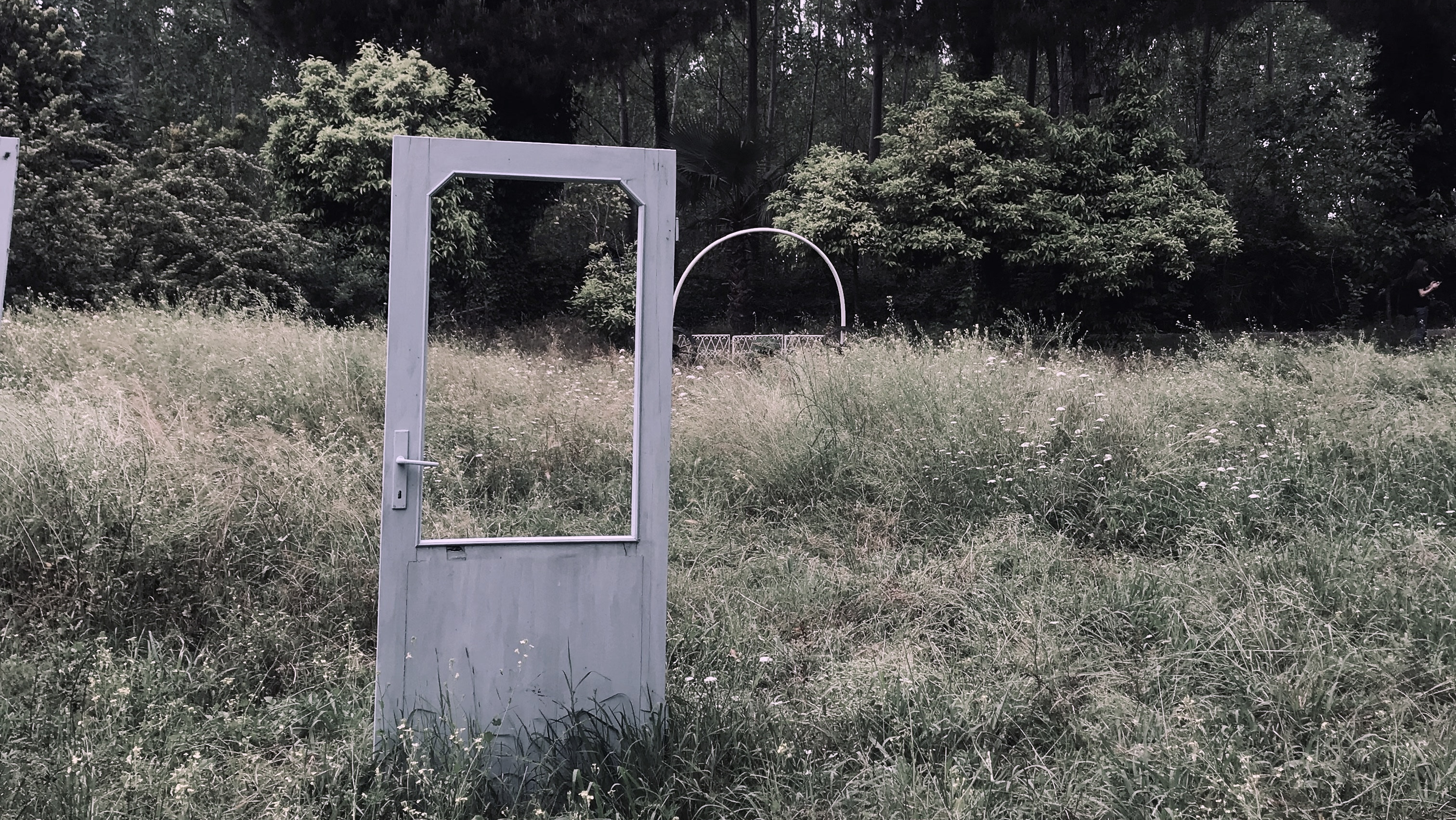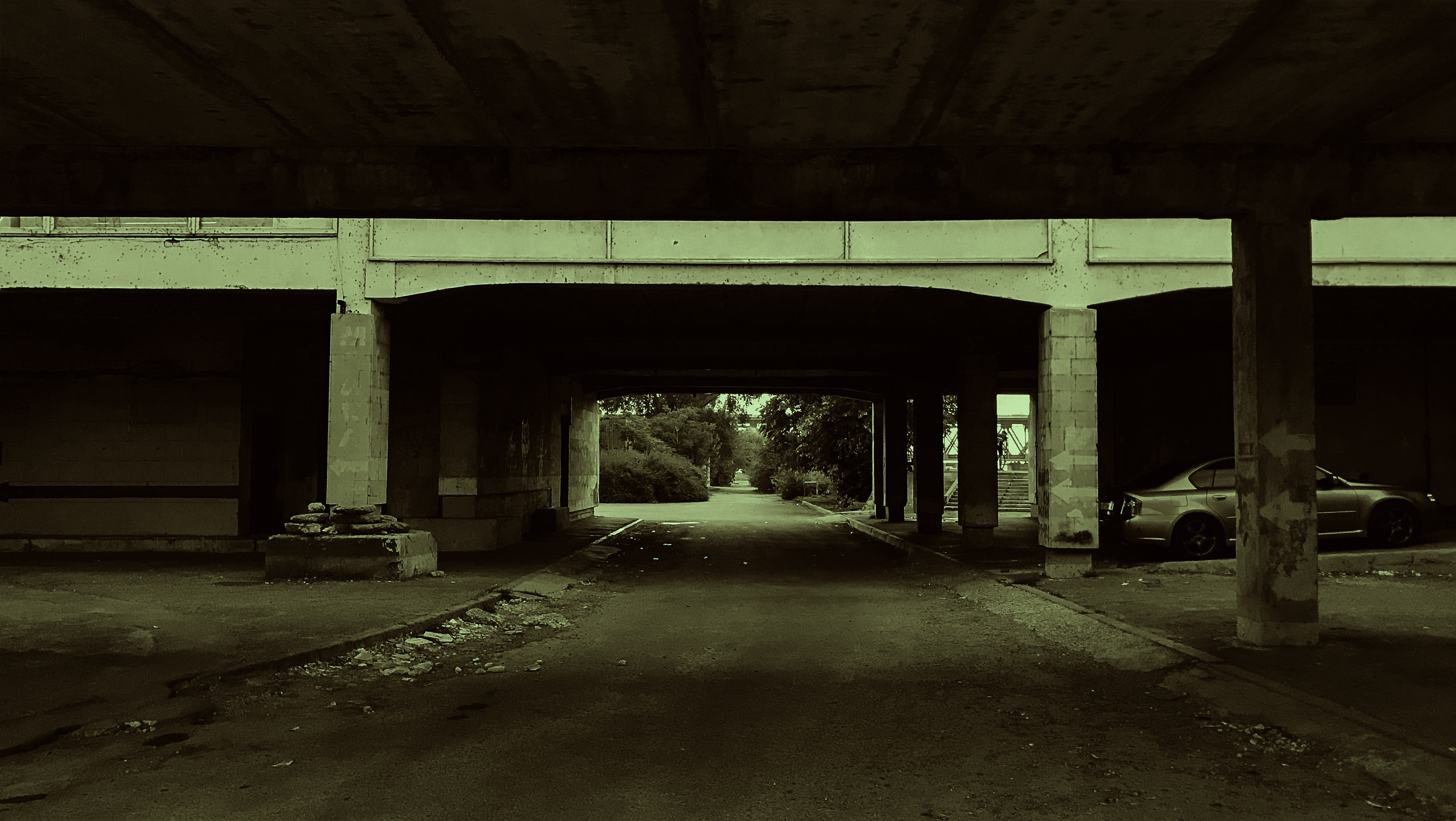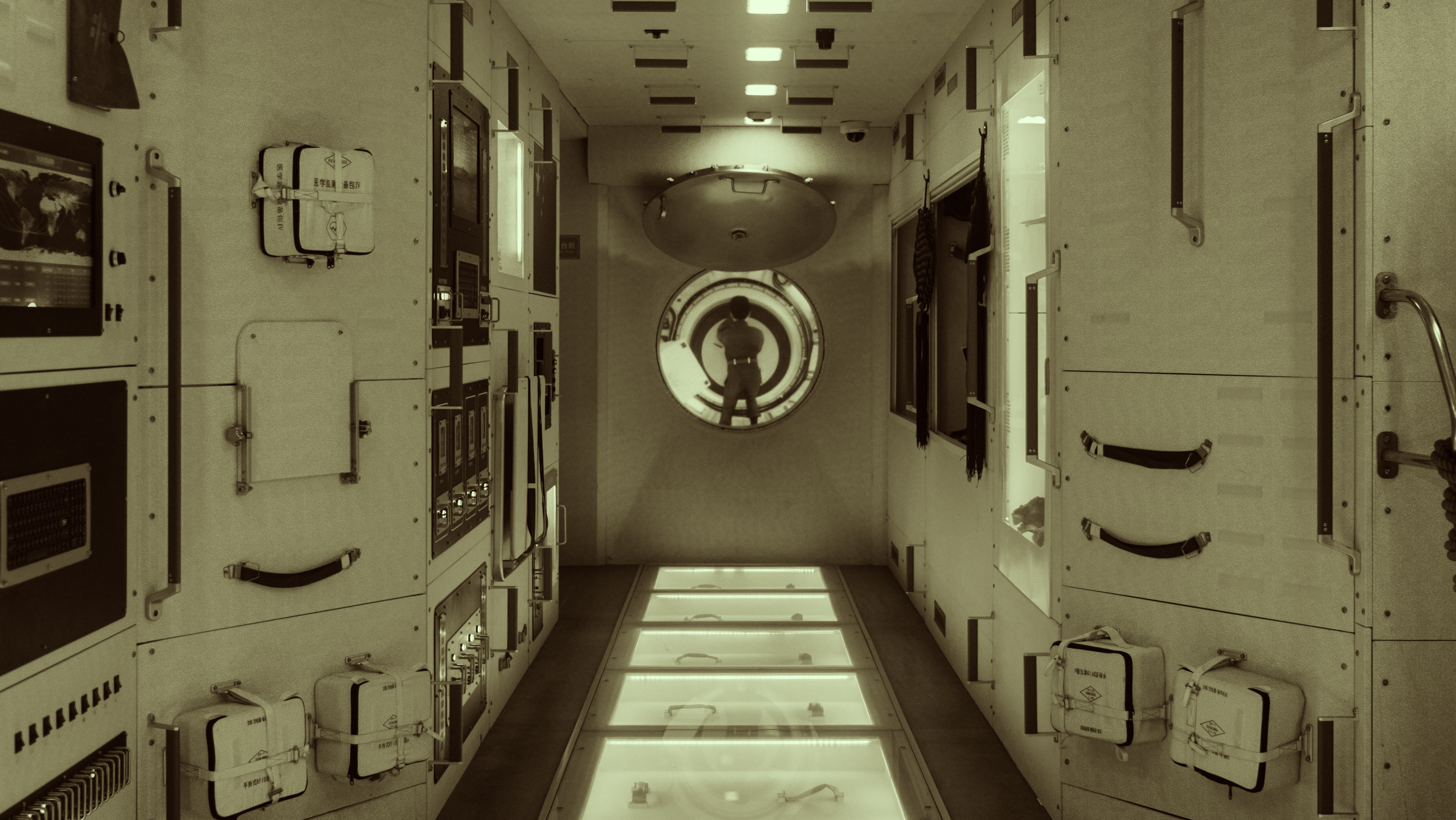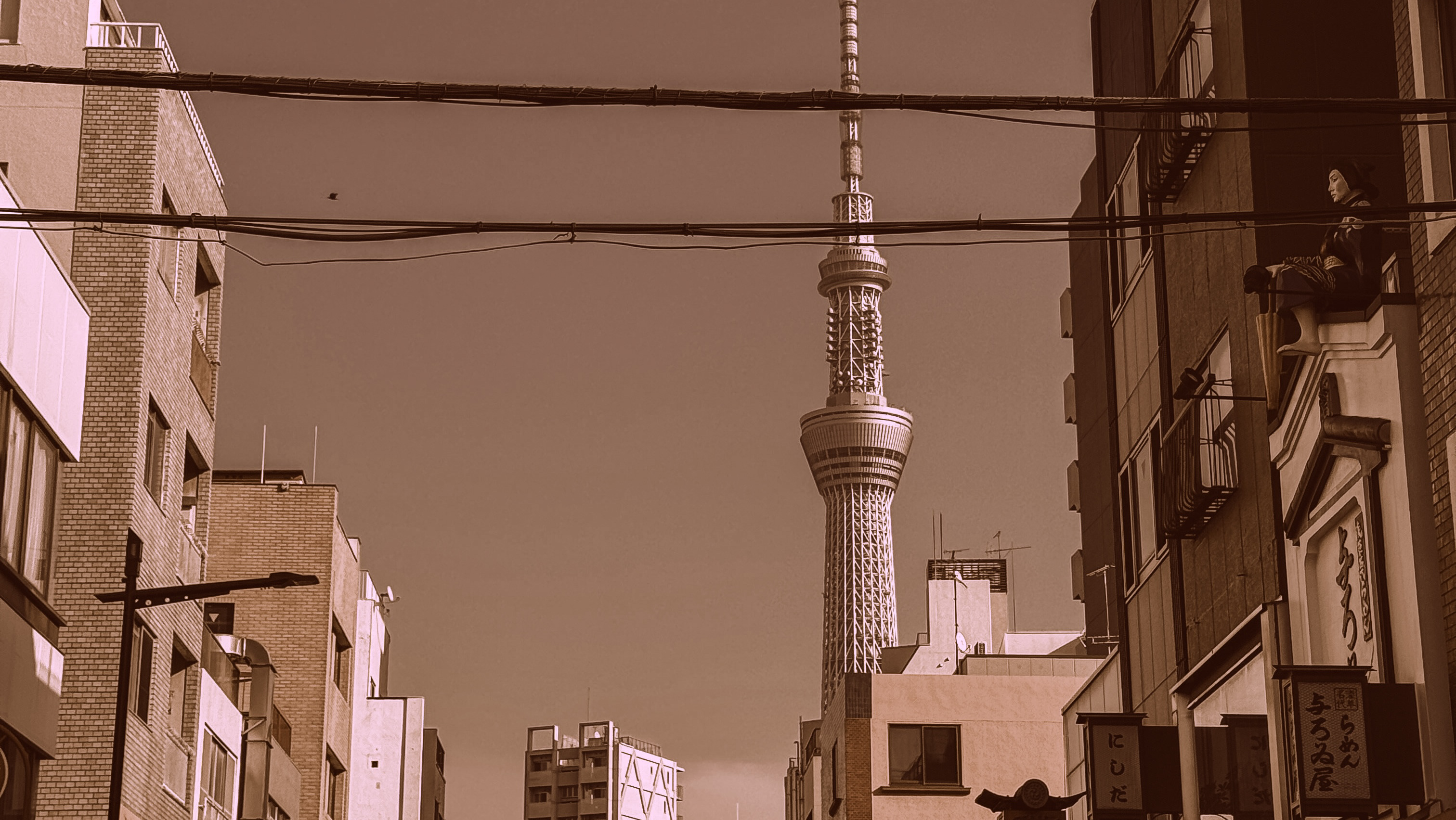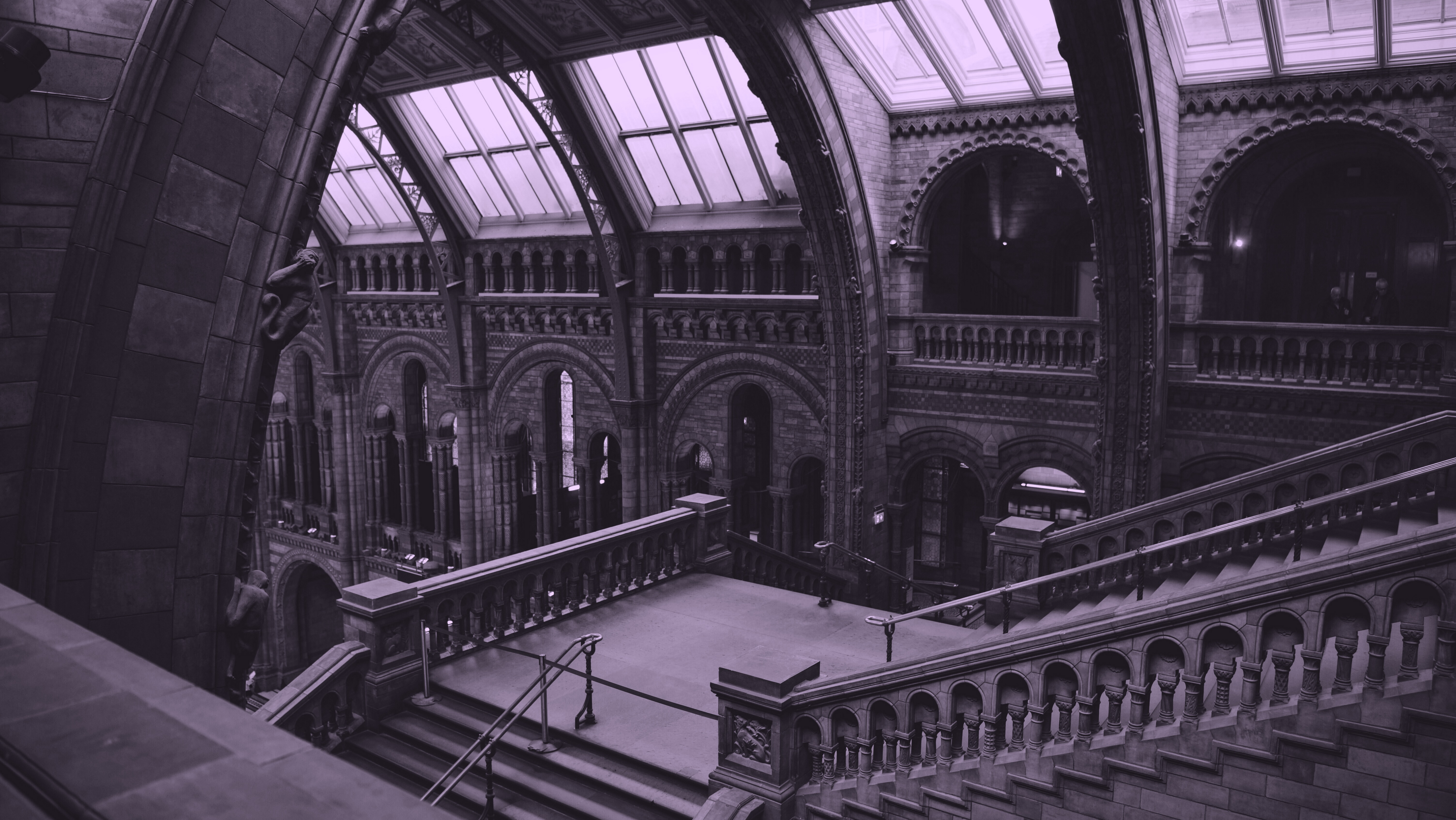Bill’s thumb glides down the page, searching for two words. He reaches the bottom, flips the page. Starts at the top, skimming the columns. Cigarette smoke leaks through his clenched teeth at the facts before him. Crime is down in New York City. He flips the page. Each word he passes, each statistic he studies, affirms the one before it. He groans, flips the page. AI policer officers make up 92% of the force. He flips the page. Unlawful arrests down 100%. He flips the page. Officer related injuries or deaths, 2%. Bill leans in, his face twitches with hope. He’s getting closer. His finger scans the columns until it slows and stops. He grins, revealing the slightest glimpse of his nicotine-stained teeth. He taps on the line of text. Suspect death related to officer, routine malfunction. Bill glances around the bar for eyes on him, but he’s unnoticed. Just one of many absent faces drunker than himself, smoking and cursing in the only place left in the city that’ll let you be human, as self-destructive as you want.
McKinley’s used to be a cop bar a few decades ago. Bill’s dad brought him for the precinct Christmas party every year. Sat him on the sticky mahogany bar, half-dead string lights over the bar mirror lighting up faded pin up illustrations from the 40s, while some drunk Santa passed out gifts to all the kids. The scent of stale beer, sweat, and a faint putrid odor reminded regulars of the time Gerry Borgman let a skunk lose inside as a prank. Everyone was happier back then. When he was going through the academy, Bill imagined taking his own kids here one day, pass on a little bit of the fond memories he got from the place. But that never happened. Janine forbid it, said the place was corrupting. Bill tried to reassure her that the place was filled with cops, but after he was fired, she said I told you so and moved the kids back to Michigan. He FaceTimes them on Christmas from the bar now, tells himself its the same thing as when he was a kid, but somewhere behind his leather hard exterior, he knows it’s about as close to rock bottom as he can get.
Seven years skulking around this place now. His hair grey and wild. His skin thickened with wrinkles and liver spots. A paunch stretching the limits of the worn police issue belt he refused to return. A final little fuck you to the force, he tells himself after every piss. Petty, maybe. But seven years stewing over a wrongful termination, seven years replaying the events that led to his fall from grace. A span of time that’s allowed Bill’s revenge to metastasize like a tumor clutching to his vital organs, forcing him to feed the growth to survive.
The annual NYPD report comes out every winter. The flimsy little booklet filled with phonebook thin paper is a closely guarded report, but it’s required by law to be printed and available to the public. Even still, people have to jump through hoops to get their hands on one. And what’s worse, it's released just before the holidays so nobody has the bandwidth to read it, let alone care what’s in it. But that wasn’t always the case.
The first report, fifteen years ago, was a document every news channel was clawing to get their hands on the second it was published. There’d be a line of reporters outside every precinct, waiting. And they’d hurry back to their outlet and report on the figures for weeks. Politicians would campaign on the numbers. Police officers would run to their union for protections. It was chaos back then. But the data didn’t lie. And every year, the numbers improved, and human police officers were phased out or recruits decided police work was a dead end career. Given over to automation, like so many other jobs.
But there were always those two words in every report. Routine malfunction. Bill and his colleagues went to war with those words on their banner in the early days of AI police work. They can’t read nuance in suspects the way humans can. They can’t assess a crime scene with a human eye. But those routine malfunctions became fewer and fewer, and pretty soon the number was under the threshold of acceptability according to Congress, according to the Supreme Court, according to the people. And then, in some horror show of poetic justice, Bill was fired from the force after a suspect died in his custody. No gold watch, no pension, no routine malfunction.
His eyes fixate on the single line at the bottom of the page of a report nobody cares about, the information searing into his brain. He won’t forget. He’ll never forget the way it used to be.
He checks his watch. Nine pm.
Louis is usually here by now, the two of them swapping war stories, trading toothless condemnations of the way the world’s changed for people like them. But Louis is one of the 8% still working for the NYPD. He still has a job, partly because he’s strait-laced and by the books. He’ll blow off steam with Bill, but he’s accepted his exile to the records department, tucked away, out of the limelight of the taxpayers. Bill can’t blame him. The guy’s seven months from retirement and a full pension. Most people would keep their nose clean.
The door swings open and Louis stands in the threshold, wheezing and blocking the fresh outside air with his portly frame. He takes a moment to ceremoniously light his cigarette before any other business. He inhales, then exhales like he’s having some immaculate religious experience. Then, through the haze, his eyes drift over to Bill at the bar and he nods.
Louis groans as he lifts himself up and onto the barstool, straining the mahogany beneath his bloated fingers. The twinkle lights behind the counter pick up his ribbons of smoke. He lifts a hand to the bartender and a drink appears in front of him. Regulars never order. They gesture and things happen.
“What’s the word, Bill?” he wheezes, after a long pull of his drink.
“You read this yet?” Bill says.
Louis lets out his deep croaking laugh, “Had no idea they even printed those things anymore. Anything exciting?”
“Routine malfunction,” Bill says, tapping his finger on the page.
Louis sighs, “Every year, it’s the same thing with you.”
“They’re getting away with it,” Bill says.
“And you didn’t. But that’s life. Let it go.”
Bill closes the report and tucks it in his jacket pocket. Louis pats him on the back, half reassuring, half uncomfortable with the same conversation they have annually.
“I miss it. That’s all it is,” Bill says with a measured dose of insecurity. He downs the rest of his drink, then adds “You work with Steve today?”
“Nah, he’s on tonight. They got us down to one person per shift down there. I mean, I get the bots don’t get lonely, but the rest of us are losing our fucking minds. You getting another one?”
Bill shakes his head. If the annual report hadn’t just come out, he might’ve stayed, but tonight, he’s working. And he has what he came for - Steve’s on shift in records.
He would’ve brought Louis into the Resistance years ago, but the guy’s too close to retirement. Too unpredictable. Too much to lose. So, Bill shows him the character he needs. The misery-loves-company friend. The drunk who hangs around swapping Tales from the Blue with whoever’s off duty. The sad sap who complains but who’ll never have the courage to do anything about it. What none of them see, what they’ve been blind to these past five years, is the man beneath the surface. The man who reads the annual report, who gathers evidence, who tracks down these routine malfunctions, who terminates the AIs who deserve it.
Bill is a hunter.
The streets are quiet after 9pm. There’s no curfew in affect, but a steady dose of crime statistics over the years have scared residents into staying home after dark. There was the threat of serial killers early on, then gangs, then random acts of violence; all episodes in the NYPD’s annual report, compiled by the eager data scientists at Haxon | Lo. The same company that conveniently provides the NYPD its AI officers. And even though human police saw no evidence of any of the crimes outlined in the report, AI were somehow able to combat them. Become our heroes. Our protectors. And people got used to staying in. They made excuses to have Zoom dinners or watch parties. And that because the safe and normal thing to do. The streets emptied making it difficult for criminals to move around anonymously. Without foot traffic there was nowhere to blend in. No avoiding cameras. No avoiding violation detectors. Not for awhile.
Bill pulls on his pixel mask. The thin translucent skin suctions to his face, revealing only hints of itself as the pixels morph ever so slightly whenever a neon sign or streetlamp glow touches it, making it impossible to read his face. The mask isn’t illegal. It just goes against the common saying ‘if you’ve done nothing wrong, you have nothing to hide.’ They’re not wrong about Bill. They just can’t prove it. And if an AI stops him, he knows he doesn’t have to say anything. Even still, he sticks to the shadows. Just to be safe. Tonight, he doesn’t need to invite unwanted confrontations.
The smell of boiling hotdogs in the air brings Bill back to the summers he used to take his kids to Coney Island. He pulls the images of rollercoaster rides and cotton candy to the forefront of his mind like a smokescreen, burying his motives deep within his mind, locking them away. AI are 100% effective at solving crime. It’s due to the friendly burrowing logic they use to question. A subtlety people hardly even recognize until the truth is spilling out of them and handcuffs are already wrapped around their wrists. They’re artful in their inquiry now, masters of the lie. So Bill tells himself he’s just out for a stroll, reminiscing. That he’s one of the few extra cautious citizens clinging to the last strands of freedom. And if he happens to walk by the 10th precinct, he’ll stop in to see if Steve’s on tonight. Check in about the ballgame tomorrow night. Nothing out of the ordinary.
Across Seventh Avenue, Bill spots an older woman holding a taut leash, her dog barking, while she explains to an AI officer why she wasn’t able to walk the six blocks to the authorized dog relief park because of her hip. But it’s no use. The AI is already writing her a ticket. She holds up the bag of poop she’s picked up, offering her excuse again, begging for mercy, but the officer’s expression is absent. Factual. She gives up. Accepts her punishment. ‘This is for your own good’ it says in the cold tinny voice the city’s become accustomed to. Its voice faintly echoing off the buildings, seeping into residents’ unconscious mind as they watch television tucked safely in their apartments. The old woman forces a smile, acknowledging he’s right. She knows those words. They’re familiar and comforting. Bill seethes at the exchange as he continues up to 22nd, feeling his acid reflux coming up his throat a little. Every hunt is the same. A queasiness runs through his body. His senses heighten. His emotions dull, and he wonders if a part of him is trying to transform himself, to become more like the AI he’s after. So he can think like his prey and stalk them more efficiently.
Bill steps under a pale blue floodlight shining against the brick of the 10th precinct. A beacon to law-seeking citizens of the neighborhood. As if to say, find safety in the cool blue glow. He takes off his pixel mask and stuffs it in his coat pocket. Better to go in innocently. Better not to invite suspicions. Think of the kids, he tells himself as he enters the station.
Every time he steps foot in here it’s like he’s sucked right back into the past. The layout is the same. The same bulletin boards, same signage. A few offices along the back wall. The bullpen right behind the entrance desk. His desk, still empty after all these years. The place may as well be a museum. Or a ghost house. The major difference, apart from the lack of humans, is that the place is fully automated now. Posters with the face of 0100, the NYPD’s AI mascot, plaster the walls, suggesting various crime prevention tactics. It’s eerily silent, except for the occasional scream from someone down in the drunk tank.
He approaches the visitor kiosk, types in his name.
“Good evening, Bill McMurphy,” the kiosk says in the same tinny voice of the AI officers out on the streets.
“Hey, how you doing?”
“I am well. How may I help you this evening?”
“Just passing by and wanted to stop in, say hi to a friend,” he says innocently enough.
“I see. I can help you with that. What is your friend’s name?”
“Steve Racklan.”
“There is a Steven Racklan working in the records department tonight. Is this the Steven Racklan you mean?”
“Yeah, that’s him.”
“I will notify him of your arrival. Please wait.”
“Thanks,” Bill replies in his rehearsed vocal pattern. Not distressed. Not anxious. Casual. Connie and Francis on the beach. Laughing. After a moment, a visitor badge prints from the kiosk with Bill’s name and picture on it.
“Please keep your visitor badge with you at all times. Proceed to sub-basement two.”
Bill takes the badge and heads down the hallway, careful not to let his gaze linger too long on the cameras around every corner, reading his movement, gauging his body language. He passes an AI officer escorting a suspect along the corridor. He averts his eyes, smiles at the ground, even as the suspect stares him, begging him for solidarity.
Bill takes the elevator two floors down and steps out into an assault of fluorescent lights rattling high pitched electrical tones. Dusty banker boxes, each hand labeled, span rows and rows of shelves. Relics of the past. Steve stands over an industrial scanner. A stack of boxes beside him. His eyes are baggy and dry. The bright lights and screeching sounds have gnawed at him for years, leaving only the husk of a once proud and dedicated man of the law. He holds up his hand, halting Bill. He checks his watch, counting down to himself, then points. Bill walks over.
“What was that?”
“Rigged the cameras to shut down for five minutes every night at ten to wipe the footage from the previous night. They think I’m just scanning old files into the system anyway,” he says with a smirk. “Buys a little privacy.”
“You pull the incident report?” Bill asks.
Steve motions to the folder on the desk beside him. Bill snatches it and reads through the contents. “Says it’s written by officer 0910, but who’s the arresting officer? Why’s it redacted?”
“That’s the million dollar question, bud. Resistance says this is a top priority. Says they think the department might be covering up something big.”
“Who’s 0910? Rookie model?”
“Just took him out of the box a few weeks ago.”
“You know where I can find him?”
“Works the west side. 7th avenue between 43rd and 44th. He’ll be over there tonight.”
He should’ve known. They always drop the rookies in the deep end. Times Square. At least its well lit.
“You doing alright,” Steve asks.
“Fine. Just the time of year is all,” Bill replies.
“You been out to see Vince? Marcie brought flowers out from the old gang, cleaned up the headstone a bit. Might cheer you up to go see him.”
Bill shrugs, uncommitted, stuffs the folder in his jacket and starts back through the stacks.
“Hang on,” Steve holds his hand up, eyes on his watch. Then he looks up and smiles, “I’ll see you at the game tomorrow night. Don’t forget the tickets.”
Bill gives a wave and heads for the elevators. It’s guys like Steve who keep the Resistance stocked with information. A whole network, not just across police channels, but political channels, telecom channels. They’re everywhere, hiding in plain sight, supplying guys like Bill with the information he needs to strike back. To make Haxon think twice before clogging the streets with their AI.
The subway platform is choked with the aftermath of a dozen holiday parties. Sober twenty somethings guide their drunk bosses to benches or prop them up against walls. Anything to make them appear sober. The youth don’t remember life before AI police. When getting drunk and rowdy was a cultural expression, instead of some taboo public infraction. The faces of the older colleagues wear on Bill, each one of them dulled by rules and public guidances. Drinking is their only escape these days. Their subtle way of flipping off an establishment that tolerates them because they know it’ll only be for a little while longer. The young will become the old soon enough and the memory of drunken debauchery will fade from humanity’s collective history, replaced by obedience and order.
The train arrives, bellowing dust and stale air. Bill shields his eyes until the screeching brakes halt and the door chime welcomes him in. He sits at the far end of the car. The seats are immaculate, the floors freshly polished, the air sharp with the stench of bleach. A taste of a world without crime is all the motivation anyone needs to behave. There is safety in compliance.
A drunk older man stumbles into the middle section of the car and lays down across three seats. His dress shirt untucked. His tie pulled loose. He hums to himself a jingle that’s just now entered his head from a commercial Bill vaguely recognizes. The man scratches his balding head and glances dreamily down at him and smiles.
“You got a cigarette?” he slurs.
Bill shakes his head. He doesn’t need the trouble tonight. He looks down at his shoes, stealing glances as the man pats his coat, finds a lump in his breast pocket, and reaches in. He pulls out a crooked cigarette and holds it up, admiring it. Bill restrains his smile at the tiny triumph. He can feel the cameras whirring, irising in and out, studying the scene for possible infractions. A lighter clicks, pulling Bill’s gaze to the man as he brings the flame to his cigarette. He watches the tiny embers brighten as the man inhales, groans, and then exhales a waft of smoke into the train car. The haze rises up into a small vented box that suddenly flickers red. Violation.
Bill touches his face, reassuring himself that his pixel mask is obscuring him for the camera. The man inhales again, and exhales, enjoying this moment.
“Violation 08015-C. Smoking in non-designated areas,” the violation detector squawks.
The man blows thin stream of smoke into it. “Aw, give it a rest,” he says. “I’m not hurting anybody. This guy doesn’t care, do you pal?”
Bill shields his face with his hand and looks away.
“An officer will greet you at the next station. This is for your own good,” the violation detector says. But the man is unswayed. He continues to puff his cigarette, breathing the smoke into the detector, filling the car with a satisfied fog.
Bill pulls his jacket collar up and moves to the next train car, stealing glances at the smoking man still arguing with the violation detector.
The train pulls to a stop at 28th street station.
From his seat in the adjacent car, Bill watches an AI officer enter the train and stand in front of the smoking man. The AI scans him, verifying his identity, then removes its hat. And against its blank metal head, the face of an older woman appears. A woman the smoking man clearly recognizes. And in that older woman’s familiar voice, the AI speaks, “Arthur, why you smoking. Don’t you know it’ll kill you? Don’t you remember how it killed Uncle Paul?”
The smoking man calms and lowers his cigarette, letting it fall to the floor. Haunted by this familiar face. Tears well in his eyes, as the AI officer gently helps him to his feet, handcuffing him and guiding him off the train in one fluent movement. This is for your own good. Bill clicks his teeth, remembering a statistic from the report. Criminals are 80% more likely to submit if the arresting officer has the appearance of someone familiar to them.
The AI officer leads the smoking man out of the station as the door closes and the train resumes down the line. Routine. Efficient. Horrifying. Bill squints, forcing himself to think of anything other than the justice he’s after. The kids at Coney Island. He had them for the week. A whole week at the end of summer. And he pulled out all the stops. Showed them how much better it was to be with Dad than cooped up with Mom in the middle of nowhere Michigan. He imagined them going home, telling her all the fun things they did. Every one of them a tiny jab at Janine for leaving him. For pulling up stakes at a really hard time in his life. Telling him to make friends at an AA meeting if he needs a shoulder to cry on, between packing her bags. The kids at the beach. They were happy, for awhile.
Bill walks up the stairs into the technicolor confusion of Times Square. Huge LED billboards flash advertisements for the pathetic spattering of foreign tourists undeterred by crime statistics. A crowd is good, Bill thinks. Easier to blend in.
He cuts across 43rd street, walking counterclockwise along the block. AI officers are programmed to walk clockwise circles around their designated zone, so it’s only a matter of time before Bill runs into 0910. The area is familiar to him. He’d worked a few homicide cases in this neighborhood with Vince a long time ago. The buildings look the same, like nothing’s changed. As if Vince’s death and Bill’s termination had no affect on the safety these people felt. There they were, through their windows, watching television, reading, laughing with their families.
Bill flips his collar up, shielding himself from the cold wind funneling through the streets. The glow of Times Square recedes, revealing the comforting quiet of a residential neighborhood devoid of homeless squabbles, gang disputes, domestic arguments. But is that a life worth living, he wonders. Sure, murder and rape and armed robbery have no place in society. But drinking, smoking, cursing, petty theft? How would anyone understand remorse or repentance without the God-given right to make mistakes. To fall in with a bad crowd. To fail as a person.
His knees crack as he sits on a darkened stoop and glances in either direction. He leans back, breathes in the quiet air and the thought of that night he brought Connie and Francis up to Times Square wanders into his mind. The kids wanted to go to the M&M store, for reasons beyond Bill’s understanding or interest. But he’d already made the promise to himself that whatever the kids wanted that week, they would get. Whatever they wanted. And after buying them overpriced tubes of candy, they were hungry and wanted TGIFridays. Again, he reminded himself of the promise he’d made them and soon they were sitting at a table eating airport-quality food in a city renowned for its cuisine, while Bill drank two tall beers and made the kids promise not to mention the drinking to their mother. He was buzzed when they stepped back out into Times Square and the assaulting glow made him stagger and stumble to the ground. A group of tourists helped him to his feet, and he remembers looking up at his kids’ faces, and how they weren’t sure whether to look at him or not, even though the pity in their eyes was evidence of his crime against them. All he could think to say was ‘Don’t tell your mother.’ And they nodded agreeance, but he didn’t believe them. That was their last visit to the city. No amount of negotiating would change Janine’s mind.
The gentle whir of mechanical legs draws Bill’s attention to the far side of the street. A weak blue bulb glows in the center of the AI’s chest, revealing its brass number plate — 0910.
Bill touches his pixel mask, unsure if the lack of light will reveal his face to the AI’s body cam, but he can’t risk drawing it into the public display of Times Square. 0910 passes him on the opposite side of the street, whirring at an even pace along the block. Bill pulls a taser from his coat pocket. Not the typical taser he’d used in his police days. This one is twice as powerful, modified, care of the Resistance. It would kill a human easily. But for an AI, it only fries their circuit endings, paralyzing them, buying him a few minutes before they regenerate.
He stalks silently, finding cover along a row of cars, eyes fixed on 0910’s mechanical march, its stride unchanged, unaware of the predator about to pounce. Bill crosses the street in a quick crouch, hiding behind a van a few paces from the AI. He catches his breath, grips the taser tightly, then walks briskly behind 0910. The AI senses Bill behind him and turns in one fluid movement, only to find a taser jammed into the small of its neck. 0910 seizes then slumps to the ground with a heavy thud against the concrete. Bill looks around the empty street, grabs the AI by the shoulders and pulls it into a stairwell.
“Can you speak?” Bill says, in a forced whisper.
“I can.” 0910 attempts to scan Bill’s face, but it can’t. It begins again, and continues as it speaks. “I do not understand, sir. I am not able to alert my precinct of this infraction. What have you done?”
“You’re paralyzed. I need to ask you some questions.”
“I see. I will do my best to assist you.”
Bill has spent enough time with AI to know how they tick. How they’re ruled by logic and facts. And if you ask the right questions, they’re obligated to answer truthfully. Like cracking a safe.
“September 16th. You wrote an incident report for a suspect related death in police custody, correct?”
“That is correct, sir.” 0910 tries to scan Bill again but it fails. The blue light in the center of its chest is pale, but gaining brightness.
“Who was the arresting officer?”
“I’m sorry, sir, but that information has been redacted.”
“Why has it been redacted?” Bill asks, imagining his fingers carefully twisting a safe dial.
“That information has been redacted for the security of the department.”
Bill considers his next question, as the blue light on 0910’s chest brightens.
“What would cause insecurity in the department?”
“Any instance that would jeopardize the integrity and public face of the NYPD.”
“Who is the public face of the NYPD?” Bill asks. Finding the right questions.
“0100, of course.”
“Was 0100 the arresting officer redacted from the September 16th incident report?”
0910’s blue light regains capacity. A flash of light bursts in Bill’s face, throwing him back against a garbage can. He fumbles to his feet, tries to tase 0910 again, but 0910 reaches for him, and Bill stumbles backward and takes off running.
He glances back as he runs, catching glimpses of 0910 on his tail, gaining on him. The safety of Times Square and its swollen crowds just ahead. If he can only make it.
But Bill slows as he arrives in the center island. Those bright billboards he took cover in, that he relied on, are now filled with images of his face. Branded across the image are the words ‘Have you seen this criminal?’ And even though Bill’s image is distorted through a pixel mask, anyone who knows him would recognize him. He studies his own face, searching the crowd, and then above him, the billboard changes to an image of 0100 and a tinny voice echoing over the crowd ‘Remain calm. This is for your own safety.’ As if the image is taunting him. Purposely trying to agitate him, throw him off his game, so he’ll make a mistake.
He hurries down a side street, back toward the river. His old stomping grounds.
It’s close to two in the morning by the time Bill makes it to Hudson Yards and up the steps to the High Line. There’s a Resistance burner phone buried under a plant bed along the west side of the pathway. He just has to remember where.
He digs, replaying the past several hours in his mind. He’s gotten close to capture before, but never this close. What’s different? What’s changed? He’s terminated a dozen AI in the past and it never even made the news. By Monday, Haxon will wheel in a truckload of fresh recruits straight from the academy without a second thought. But this. If his hunch is right, and 0100 is responsible for a suspect’s death in custody, that would be big news. News that gets the public’s attention, even if only for a few days. The face of the NYPD’s AI program killed a suspect and attempted to cover it up. The public would start scratching their heads, suddenly interested in the annual report. They’d talk about those routine malfunctions with friends, colleagues, congress members, until cracks form in their safe bubble and they question whether AI are able to protect them any better than humans had been. Maybe then there’d be some reform. Get back to how it used to be.
Bill’s fingers scrape across a plastic bag buried beneath a tuft of weeds. He pulls the bag from the hole and dusts it off. A burner phone inside. He covers the hole and keeps walking along the High Line, dialing in one fluid movement.
“Hello,” the voice on the other end says.
“Yeah, I got a problem.”
“We can see that. You’re all over the news,” the voice says.
“How the hell’d they make me so easy?”
“Could’ve been a number of things.”
“What about a mole?” Bill questions.
“We don’t know. For now, you need to disappear.”
“I’m close to something here. If I can find 0100, I can expose these fuckers,” Bill says.
“You’ve been compromised. The only chance you have is to get to a safe house.”
“You know where 0100 is. Gimme the address.” He waits as the line goes quiet, then raises his voice, firmer this time, “Give me the address.”
Silence takes over, and Bill looks out over New York’s early hours. At a time when he and Vince used to ride along these empty streets like they had the whole city to themselves. Drinking shitty bodega coffee and listening to the overnight radio DJs play a string of Motown classics, each one more infectious than the last. And by the time morning rolled around, they’d be singing along at the top of their lungs as city dwellers rolled out of bed and stepped out into the world for the day. They felt safe in his memories. Everyone felt safer there.
“557 West 38th Street. Apt 4F. A call just came in. 0100 is the responding officer.”
“Good.”
“It’s not good. It’s convenient. They’re up to something.”
“If I don’t act now —“
“If you terminate 0100, what will that prove?”
“That there are people out here, good people, who stand for justice.”
“We need to confirm that he was the redacted officer first. Or there is no justice.”
“I feel it in my gut. I know its 0100.”
“Stand down, Bill. Please.”
But he ends the call and drops the burner on the ground, crunching it under his heel. He looks to the north, to his destination, with a resolve that’s as much solemn as it is stoic.
There used to be a building on the 500 block of west 38th and 11th avenue. The Braeburn Summit Tower. It was one of those old world brick facades with fireplaces in every apartment, a marble floored lobby, and a doorman who remembered everyone’s name. Twelve floors of people — neighbors — who’d lived there most of their lives. And when the time came to move on, they’d pass the place down to their children. It stayed like that for decades. They didn’t all get along, but for the most part, they passed out candy to kids on Halloween, hung lights on Christmas, pinned up decorations on any other holiday the residents wanted to celebrate. It was more than a building full of people. It was a community. Then, sometime in the late 2020s, Mrs. Allen, a lady on four who nobody really got along with but was pleasant enough, decided to move down to Florida for the warmer climate. In the tradition of everyone else in the building, she passed her rent-controlled apartment down to her son, a degenerate with no career prospects named Chris. Everyone kept their distance. This isn’t how it’s supposed to be, they’d whisper amongst themselves. When they saw Chris enter the lobby, they’d turn away and pretend to look at their phone or check their mail. And Chris would just click his tongue and keep marching to the elevators.
After a while, Chris started to dress nicer. Expensive jewelry. Custom sneakers. He’d play his music loud as the waft of drugs filled the corridors. He’d have guests coming in and out of his apartment at all hours of the night. It got so bad that the doorman reported the strange activities to the building manager who in turn warned Chris that any illegal activities on the premises would require him to call the police. But Chris was defiant, threatened the building manager, said he knew his rights and that he was being harassed. The building manager backed down and that was that for a while. People kept coming and going at all hours. Residents avoided eye contact and eventually stopped lingering in the lobby. The tension made them rigid. Some of them moved away and new people moved in. Less friendly people who played their music too loud and argued violently through the walls. The residents stopped trick or treating and decorating for holidays. They stopped trusting each other as much. They went out for groceries and to meet friends or go to work, but otherwise they’d hurry straight through the lobby and up the elevator to their apartment without a word uttered, without eye contact. And a distance grew between the residents to match the silence filling the corridors.
The Braeburn Summit Tower was torn down five years ago to make way for this luxury condo building. Sheets of glass looking out across the city and across the Hudson River, each unit staging fancy furniture and moody lighting for the envy of the west side. The residents are as cold as the facade. As hollow as the concrete lobby, Bill imagines. He looks up at the place, filled with a strange sense of deja vu and dread. He’s never been in this building before, but he had visited the Braeburn Summit Tower once. That night is burned in his memory.
He rounds the back of the building, and enters through the trash room. Piles of black garbage bags absorb all light in here like some black hole, enhancing Bill’s sense of smell. He picks up the scent and taste of rotten chicken and produce. Of dirty diapers and moldy towels. He stumbles through the darkness to the mechanical room door and enters the building.
The rear hall is quiet, save the soft laughter of an old sitcom coming from a television in the lobby. Bill steps lightly along the concrete floors to the elevators, but stops himself and considers the sound the elevator may make if he presses the button. A ding could alert the doorman, or he could be asleep. But he can’t take that chance. He heads for the stairwell instead.
Four floors above him lies the answer to his redemption. The AI who’s routine malfunction will show the city that there’s no alternative to human police work. But the weight of a thousand cigarettes presses against his lungs with each step. He wheezes, his heart pounding through his chest. With each flight, he remembers the good times. His graduation from the academy. The first drink as a cop his dad bought him at McKinleys. The first arrest he ever made. His promotion to detective, and the first homicide case he ever solved. His overnight shifts with Vince, driving around the neighborhood. Those memories are all he has anymore. Memories that’ll die with him, with his generation, while the world grows comfortable under the heel of AI.
Bill holds the wall as he steps onto the fourth floor platform, dizzy and out of breath. His lungs burn. The iron taste of blood bubbles up his throat and tangs the back of his tongue. Sweat beads across his forehead as he draws his taser. Double checks that his pixel mask is securely tightened over his face.
The fourth floor corridor is empty as he steps out. The concrete walls are lit with a soothing ceiling LED light through a gap at the seams, as if he’d wandering into an art gallery. He steps gently down the hall, drawn to the muffled sound of a conversation around the corner. His destination. As he draws closer, their words become clearer, the tenor of a distraught husband, the slightly higher pitch of his wife. And the tinny mechanical voice of an AI.
Bill raises his taser, bracing himself against the corner of the hallway. He draws a deep breath, then spins around to the adjacent corridor — but there’s nobody there. Just an open door. 4F. The argument seeps from within.
He approaches the door cautiously. The dim interior light spills out, revealing shadows playing against the smooth floor. Three distinct silhouettes to match the three distinct voices he hears. The smell of roasted vegetables, herbs, and wine linger in the foyer. An interrupted dinner. Terminating an AI in front of witnesses isn’t ideal, but it’s not unheard of either. The Resistance has gained recruits in the past off stories just like that. People emboldened by a change they didn’t know was a possibility. But his justice has to be ironclad. The allegations against 0100 have to be confirmed beyond any human measure of certainty. If this termination means his end, it must mean the beginning of another’s resistance.
He edges along the hallway, through the bare foyer spotted with functional shelving and mass produced modern art, to the living room.
Their eyes flash in horror before 0100 even feels the sting of Bill’s taser. The man cradles his wife on the loveseat as its body collapses to the polished concrete with a dull thud. Something rattles in the kitchen upon impact, like an earthquake rumbling through the building. The couple whimpers at the sudden violence performed before them. An unwitting audience to a moral showdown.
“Stay calm,” Bill tells the couple as he leans over 0100’s paralyzed body.
“Who are you?,” the woman asks.
But before Bill can answer, the tinny voice of 0100 interjects, “His name is Bill McMurphy.”
Bill glances down at 0100, trying to mask his surprise. The shock of his name spoken aloud for the first time in a long time. “You’ve come to terminate me,” 0100 continues.
“You killed a suspect in custody. And then covered it up.”
“You must be mistaken, Mr. McMurphy.”
“September 16th. I read the report.”
“The report in question itemizes that exchange as a routine malfunction,” 0100 replies.
“You don’t get to hide behind that excuse,” Bill seethes.
“What excuse would you have me hide behind, Bill?” 0100 asks.
The man tries to stand from the couch, but Bill glares at him, points his taser. Sit. He turns his attention back to the AI beneath him, its blue core dull, but brightening.
“I need you to admit to your crime. Admit to killing a man and covering it up to protect the department. To protect Haxon,” Bill says.
“Often times, humans avenge crimes, not for justice, but to rectify an emotional distress within themselves.”
“What the hell are you talking about?”
“Bill, where are you?” 0100 asks. “What location?”
“I’ve never been here before.”
“Not here, but a version of here. Years ago. With your partner, Vincent Alonso. A different building perhaps, but the apartment number is the same. 4F.” 0100’s face slowly changes to the face of a man about Bill’s age. A wrinkled hispanic face. Greying hair. A face Bill recognizes.
Bill stands, backing away from 0100. “You set me up?”
“We came here, seven years ago. Don’t you remember what happened?” 0100 says in the exact voice of Vince. But Bill remains silent. He struggles to block the memory from bleeding into the front of his mind, but it’s no use. The walls become brick. A fireplace against the river facing wall. The Braeburn Summit Tower summoned in remembrance of a horrid memory.
“We came up to apartment 4F. Building manager reported a disturbance from a young man living here. You let me take the lead because you were all hungover. Remember that Bill?” 0100’s says in a version of Vince that is haunting.
“So what?” Bill barks back.
“I was first through the door, partner, so I took the shotgun blast. You apprehended the suspect as he was reloading. Then what happened?”
“I took him into custody.”
“Did you? “cause the incident report says he was dead before backup arrived. What’d you do to Chris Allen, Bill?” 0100 says, the face of Vince playing over its smooth metal head.
“I don’t know. He must’ve hit his head.” Bill says, stealing a glance at the seated couple, watching him weakly as his past is unveiled for their judgement.
“Or was it a routine malfunction?”
“No, that’s not what happened. I made a clean arrest. Even after what that scumbag did.”
0100’s blue light glows brighter. Its body twitches, life returning to it. It bends its neck up, Vince’s face displays as it speaks, “You wanted revenge. Right there and then, didn’t you?”
And suddenly, the truth constricts Bill, the events of this night weaving around him, tightening in some elaborate web constructed by this AI standing before him.
“The incident report was a trap. You didn’t kill anyone, did you?”
0100 rises to its feet, its blank face returning, as Bill steps back toward the doorway. He can feel the couple’s eyes on him, their judgment calcifying against him.
“That is correct, Mr. McMurphy. But you knew that, didn’t you?”
“No. What… what are you talking about?” Bill stumbles.
“You knew this was different. A redacted file. A faulty pixel mask. A confrontation at the same location your career ended.”
“You manufactured this meeting,” Bill says weakly.
“I manufactured this arrest,” 0100 corrects.
Handcuffs seep through its alloy wrists like dripping icicles slowly taking a ringed form and depositing themselves in 0100’s hand. Bill holds his taser threateningly at 0100.
“This is what you wanted, Bill. Deep down, you know it is. The hurt you’ve felt these past seven years couldn’t be dulled by your vigilantism, could it?”
Bill’s hand slacks. The taser falls to the concrete floor and breaks, as the twist of the handcuffs wrap around his wrists and 0100 comes in close to his ear.A metal AI face made popular across every NYPD billboard throughout the city.
“Cheer up, Bill. You’ve done the right thing. Humans crave punishment for their crimes. It’s what reinforces the boundaries of acceptable society. This is for your own good.”
